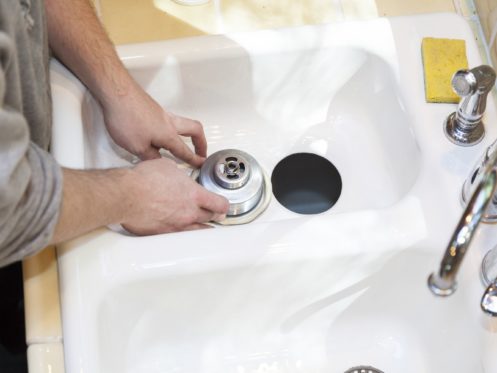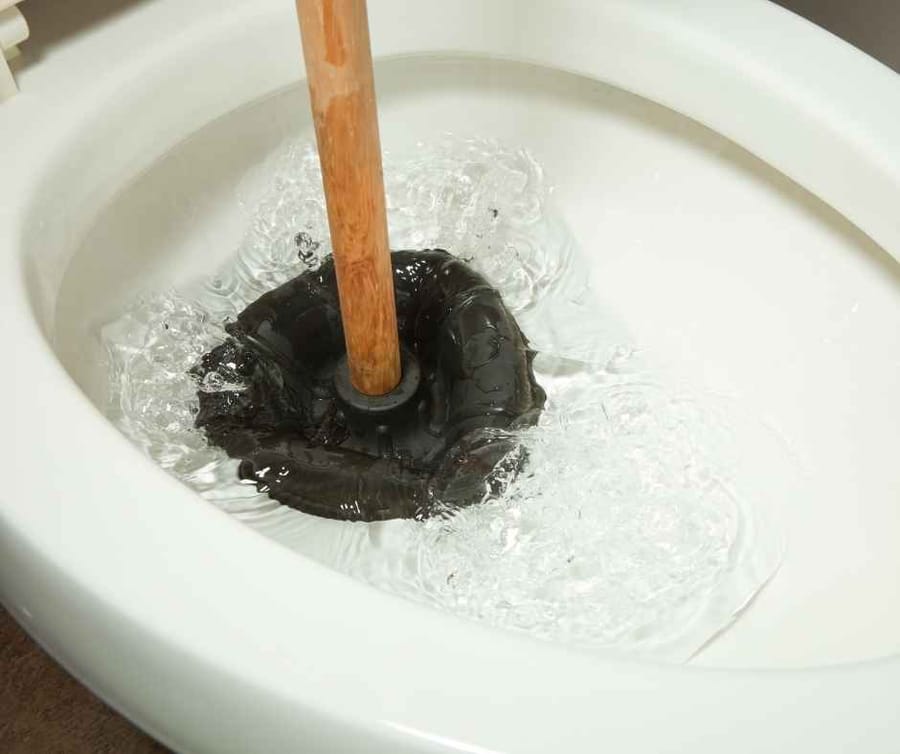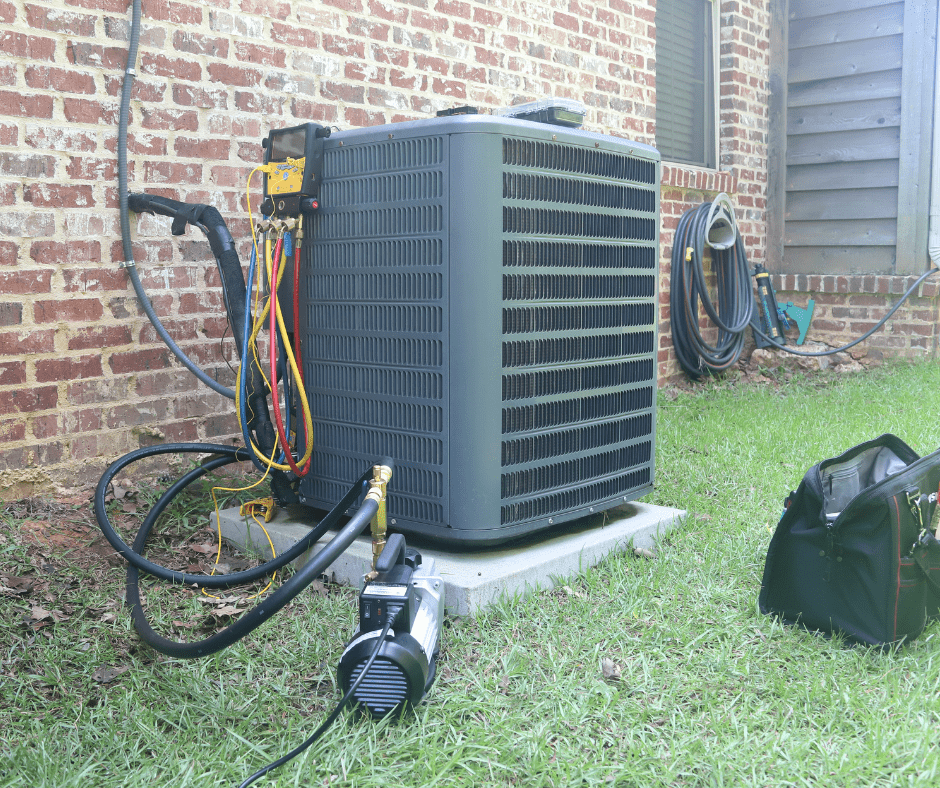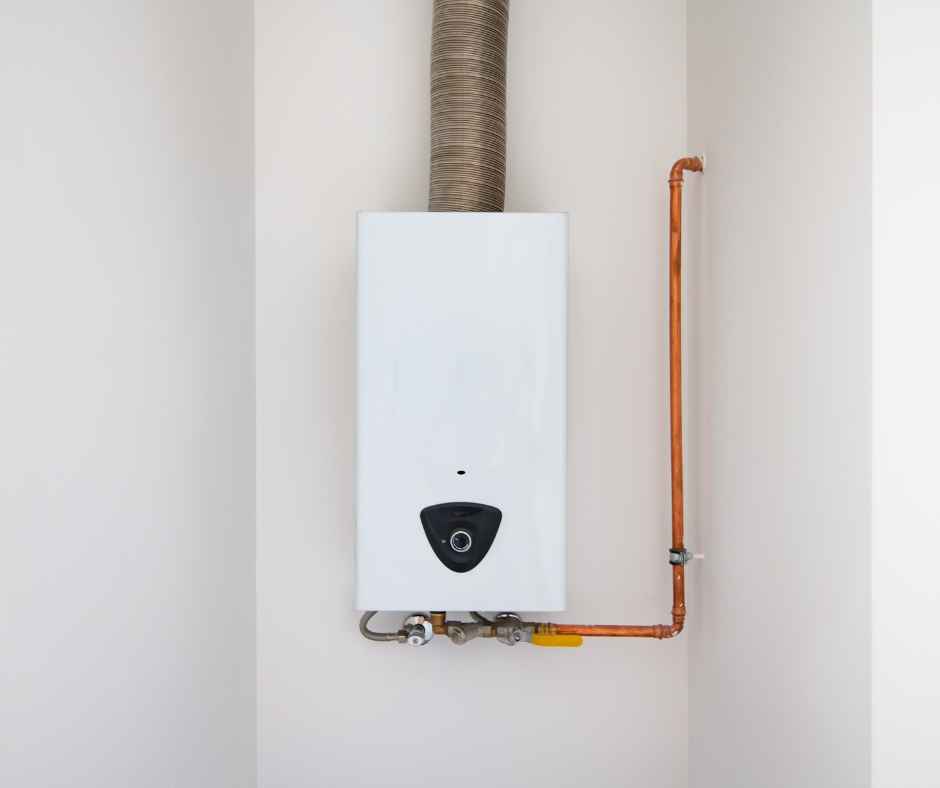The Dangers of Pouring Grease Down Your Drains
When you’re cooking a rich meal, you can easily end up with a few tablespoons or more of leftover grease. Figuring out how to dispose of this grease can be tricky. Though pouring it down the sink might seem like the simplest option, it’s actually a bad idea. Why should you never pour grease down your kitchen sink? It turns out that grease can cause multiple problems.
Types of Grease That Create Plumbing Issues
Before getting into all the details of why grease is bad, it is important to first understand what sort of grease causes issues. Many people assume that the only dangerous grease is bacon fat, lard, butter, or another grease that is solid at room temperature. While this sort of grease is certainly the most dangerous, it’s not the only problematic grease.
Any liquid oil, like frying oil or olive oil, also causes issues. Don’t forget that it’s possible for grease to damage pipes in other rooms besides the kitchen. If you use certain oils as a lotion, face cleanser, or hair conditioner, you can also cause problems in your bathroom drain. You can also run into issues if you’re pouring motor oil or other home maintenance greases down your garage or basement drains.
Grease Can Cause Major Clogs in Your Plumbing
The main issue with grease is that it results in clogs. Many types of grease are liquid while you cook with them, but once they cool, they turn into a solid. When you pour this grease down the drain, it eventually cools down enough to become a solid mass. This can quickly form a huge lump of accumulated grease that entirely closes the drain. You’ll have this problem even if you use hot water to help melt the grease a little. In fact, hot water can be worse because it causes the clog to form further along your drain. Instead of just clogging the kitchen sink, you might end up clogging your main drain line.
You might think that it is fine to pour smaller amounts of grease down the drain, but even a tiny amount can cause issues. Not all clogs are made of just plain grease. Grease also forms clogs because it’s sticky. A tiny bit of grease can make other items in your drain clump together. Once your drain is partially clogged with a bit of grease and other material, water starts to move slower. This gives more debris a chance to accumulate. In the end, your drain can be blocked completely with a big clump of grease, old food, hair, or paper.
Keep in mind that drains can take some time to clog, so it might not be possible to notice the issue right away. Signs you might need to call your local HVAC and plumbing company for help include:
- Slow moving drains
- Water standing in sinks
- Water backing up in tubs
- Bubbles from the drain
- Strange noises in your pipes
- Foul smells from the drain
Other Issues With Grease Going Down Drains
Some people shrug and ignore the problem of clogs because they think clogs are relatively easy to clear. However, you should know that grease can cause other issues beyond just clogs, and some of these problems cannot be solved by quickly snaking the drain. Not all types of grease form a big clump. In some situations, grease you pour down the drain just coats your pipes with a fine layer of grease.
This oily substance can disrupt water flow through your pipes. Typically, a home’s plumbing system is designed with the assumption that water will flow smoothly through all your pipes. However, accumulated grease can slightly disrupt water flow, making it move at different rates or slosh around in your pipes. In some cases, turbulent flow can put pressure on your pipes and increase the chance of corrosion or leaks in certain spots. It can also cause a “shockwave” effect where water pressure builds up and then decreases suddenly. This results in a water hammer which causes loud, banging noises.
How to Fix Clogs Caused by Grease
If you have a grease clog, it’s important to avoid attempting to melt the grease. Doing something like pouring a boiling pot of water down the drain will just push the clog farther away. Instead, it’s more effective to try to break up the clog into smaller pieces. Some home remedies, like a blend of vinegar and baking soda, can be effective for smaller clogs. Using a plunger on the drain can also work in some cases.
For more serious grease clogs, you usually need to snake the drain. This involves using an auger to push through the clog and either pull it out or break it up. Some homeowners prefer to do this themselves, while others like to call a professional for assistance. Working with a professional plumbing technician is especially helpful because they have access to commercial solvents and cleaners. This can help thoroughly remove grease buildup and keep the clog from causing more problems.
What to Do With Grease Instead of Pouring It Down the Drain
To avoid clogs, you will need to find a safer way of disposing of your grease. One option is to reuse it. If you use your grease to fry things, you can pour the oil through a filter to remove food, store it in an airtight container and use it again. You can also recycle your oils by collecting them and adding them to a compost pile. Some towns may even run recycling programs specifically for collecting grease.
If you don’t have the ability to recycle your grease, you can dispose of it by throwing it away. Try to avoid pouring hot grease in the trash because this can dissolve your trash bag. Instead, let it cool slightly and then use a spatula to scrape it out. Another option is placing paper towels in the pan to absorb the grease and then throwing them away. For larger amounts of oil or grease, try pouring the grease into a container filled with cat litter and then throwing it away.
For those who would prefer to avoid all this hassle, consider switching to cooking methods that use less grease. This can be good for your drains and for your health. Try making simple switches like roasting or baking instead of frying. If you love the taste of deep-fried food, you may want to switch to a convenient air fryer. You can also reduce oil usage by simmering, boiling, or steaming your food.
If you’re dealing with plumbing problems like clogs, Blue Bear Plumbing, Heating & Air is here to help. Our team can assist you with a variety of plumbing issues, including drain cleanings, pipe repairs, and toilet installations. We also have several fully licensed HVAC technicians. Boston residents can rely on us for help with repairing, installing, or maintaining HVAC units. If you would like to schedule an appointment or learn more about our services, give us a call today.
Contact Us Today

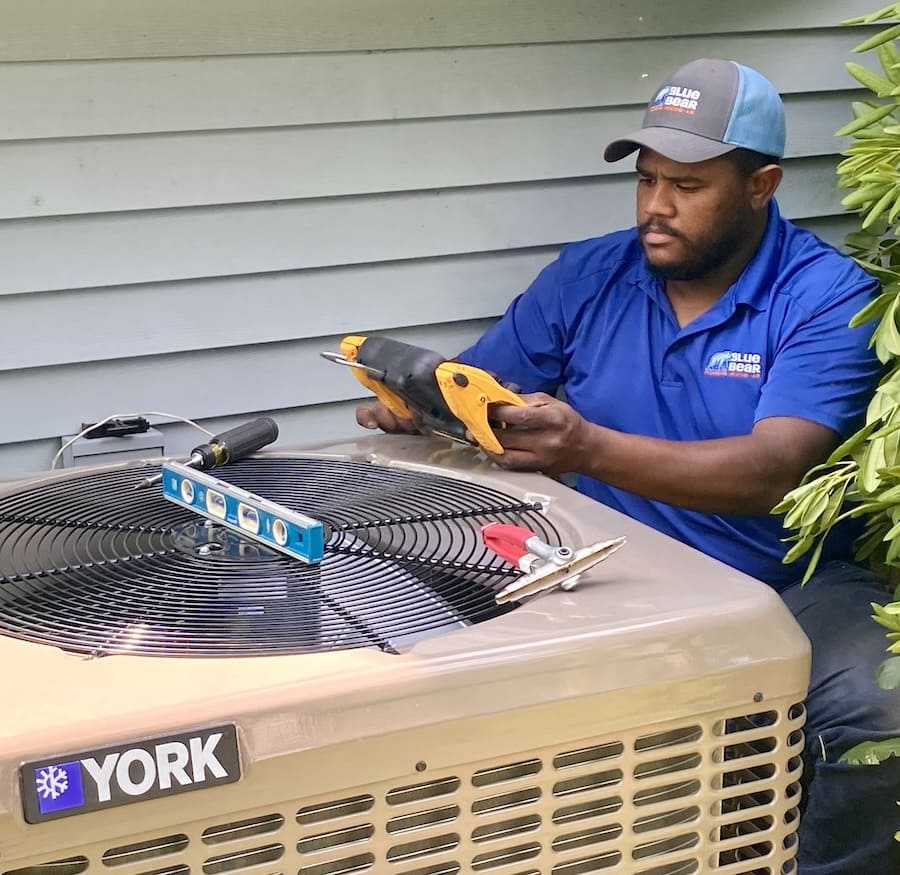

Routine maintenance is vital for the longevity of your plumbing, heating, and air conditioning systems. Sign up for our Blue Care Maintenance Plan for annual service and exclusive membership benefits, including:
- Priority scheduling
- Waived service fee during normal business hours
- 10% discount on service calls
- 3% discount on new installations
- Two-year parts and labor warranty on new equipment




